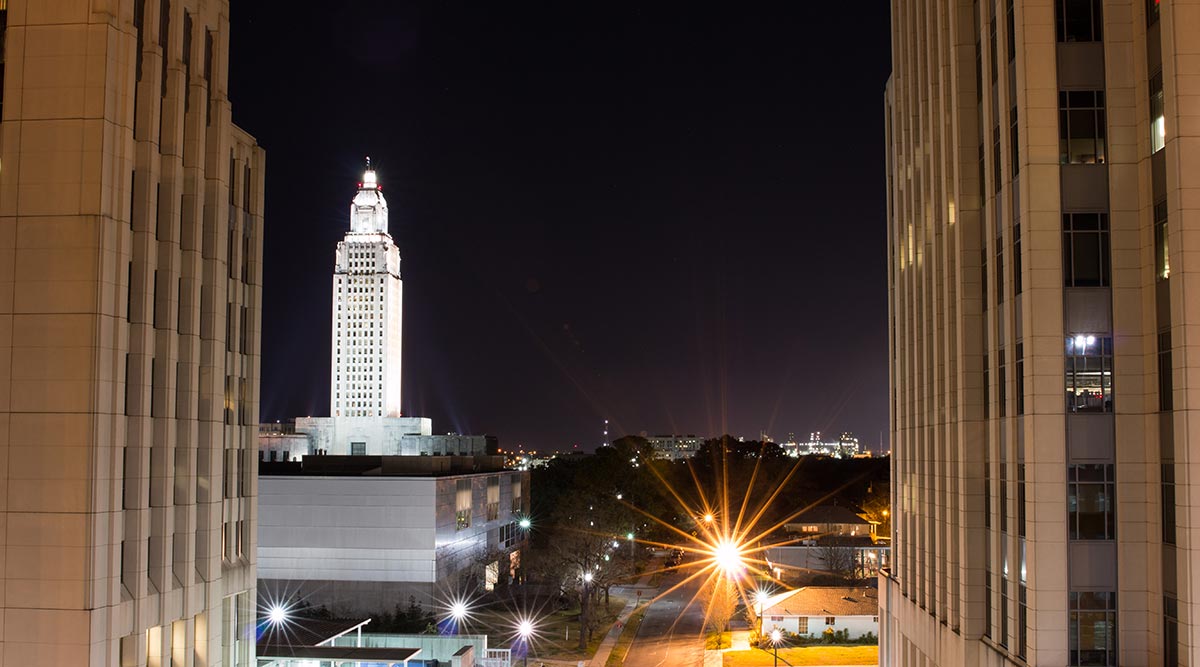Controversial, Long-Shot Bid to Raise Louisiana's Gasoline Tax Dies

The five-month campaign to upgrade Louisiana's jammed roads and bridges by raising the state gasoline tax died May 31 with little fanfare in the Louisiana House.
"We tried and we failed," state Rep. Steve Carter, (R-Baton Rouge) and sponsor of the legislation told the House.
Carter said all along that, without enough votes to pass his proposal — House Bill 632 — he would not push for a recorded vote. "I know we don't have the votes," he said.
The action made official what lawmakers have said for months: Convincing two-thirds of the House to endorse a major tax increase was a near impossibility in a session dominated by state financial problems.
Backers needed at least 70 votes to send the bill to the Senate, and unofficial headcounts were said to be in the 50's and low 60's.
Supporters could only garner 60 votes as of the night of May 30 "after an exhaustive full floor lobby," Ken Naquin, CEO of Associated General Contractors, said in a memo to supporters the morning of May 31.
The session ends on June 8.
Carter's bill would have raised the state gas tax 17 cents per gallon, which would raise $510 million per year for roads, bridges and other transportation needs.
On May 30, he said he planned to trim that request to 10 cents more per gallon — about $300 million per year — but conceded May 28 that the revision failed to spark a breakthrough.
The latest push to boost state aid for transportation began in December, when a task force named by Gov. John Bel Edwards recommended a $700 million per year boost in road and bridge spending.
Shawn Wilson, secretary for the state Department of Transportation and Development, helped lead the push to raise the gasoline tax for the past five months.
Nearly three dozen influential groups — including the Baton Rouge Area Chamber, One Acadiana and the Louisiana Chemical Association — got behind the push with radio and TV ads.
However, Edwards mostly kept a low profile on the issue while saying that he would support any bill consistent with the task force recommendations.
Opponents said the increase would unfairly burden motorists, and that state transportation spending practices need improvements before DOTD is given more money. They praised the death of the effort.
John Kay, state director of the Louisiana branch of Virginia-based Americans for Prosperity, said door-to-door visits, town hall meetings and e-mails helped kill the push. "AFP activists across the state should be elated by this victory, it's theirs," Kay said in a statement.
Roger Villere Jr., chairman of the Louisiana Republican Party, urged taxpayers to call their representatives and thank them for refusing to go along with a boost in the gas tax. "Too often we call our legislators only to urge them to vote a certain way or complain about how they voted, but fail to say 'thanks' when they get it right," Villere said in a statement.
In his comments to the Louisiana House, Carter denounced state Republican Party leaders and said he was incredulous that party leaders said there was no need for a gasoline tax boost ever. He said the stance was especially notable because the State Central Committee was sharply divided on the merits of the push.
In a brief interview, Wilson said he was disappointed for taxpayers that the House did not vote on the bill.
"I think they would be surprised and equally disappointed," Wilson said. "More importantly, I am disappointed for the citizens of the state who are not going to get the type of projects that they desire, that they need, that they deserve as a result of having to live within our means."
Adam Knapp, CEO of BRAC, praised Carter for pushing the issue. "Given the crisis of congested and crumbling road conditions in the Capital Region and across the state, today's failure to act on this issue by the House is deeply disappointing," Knapp said in a statement.
Motorists pay 38.4 cents per gallon now, including 20 cents in state charges.
The tax has not been changed in 28 years, and Wilson repeatedly noted that its buying power has shrunk because of inflation and other factors.
The state has a $13.1 billion backlog of road and bridge needs, and Wilson has said Louisiana is in danger of being unable to meet federal matching requirements on future projects.
Carter said his message to Republican leaders is, "we cannot become the party of so-called Americans for Prosperity."
After Carter's comments several lawmakers praised his efforts, and accused colleagues of ducking thorny topics.
"If you don't have the courage to take the tough stands then stay home," said Rep. Terry Landry, (D-Lafayette).
Others, including state Rep. Alan Seabaugh, (R-Shreveport), angrily denounced the bill and said their opposition reflected the sentiments of their constituents.

